Hawaii has launched a renewed campaign titled “The People. The Place. The Hawaiian Islands.” Do you think this campaign will make a difference? Here’s what it’s all about.
This initiative claims, as have others, to provide Hawaii visitors with a richer, more meaningful travel experience by delving deeper into the islands’ stories and culture. By focusing on the unique elements that make Hawaii special, Hawaii Tourism’s HVCB is encouraging a form of tourism that respects and honors the islands’ heritage and natural beauty.
These are the sub-segments of Mindful Hawaii Target Travelers the campaign identifies: Which one are you, or will you write your own subgroup?
- The Eco-Conscious.
- The Culturally Curious.
- The Service-Minded.
- The Unobtrusive Explorer.
Mālama Hawaii messaging: This messaging focuses on caring for the land, culture, and community of Hawaii, encouraging visitors to participate in preservation and respectful travel practices.
Social Media Engagement: The campaign emphasizes the use of social media to share personal experiences and favorite spots from locals.
Engaging Hawaii travel stakeholders community.
HTA and HVCB are urging members and partners to actively participate in promoting this campaign. The call to action includes sharing the provided assets via social media, in-flight and in-room videos, on-property digital programs, email reservation confirmations, and other channels where Hawaii visitors can be reached. This collaborative effort aims to educate and inspire travelers to engage with Hawaii in a more mindful and respectful manner.
Reflecting on past Hawaii marketing.
HVCB’s claims that prior initiatives aimed at fostering mindful tourism sparked significant interest and engagement. When we last wrote about their initiative, which they claimed resonated deeply, it propelled BOH readers, generating a slew of comments. Here are some highlights of their messaging:
Respect for Local Culture: Emphasizing the importance of understanding and respecting Hawaiian customs and traditions.
Environmental Stewardship: Encouraging visitors to participate in activities that preserve Hawaii’s unique ecosystems.
Supporting Local Communities: Highlight ways tourists can contribute to the local economy, such as buying from local artisans and dining at locally owned restaurants.
The importance of Hawaii mindful tourism.
According to Hawaii Tourism, mindful tourism is not just about enjoying a destination’s beauty; it’s about ensuring that the experience is enriching for both the visitor and the local community. It involves being aware of the cultural, environmental, and economic impacts of tourism and taking steps to minimize negative effects.
Voices from BOH’s community.
Our readers also shared a diverse range of perspectives on mindful tourism:
Gloria S: “The brand marketing will be targeted to mindful travelers with an emphasis on lifetime trip expenditures and increasing per person, per day expenditures. It seems that some lawmakers in Hawaii prefer that only billionaires visit the island, and how sad is that?”
Tito: “I always believed that being a ‘mindful’ tourist in Hawaii meant not venturing off marked hiking trails, not trespassing on private property, not disturbing wildlife, taking only photos, and leaving only footprints. If spending more money per day is the new definition of ‘mindful,’ then just realize that traveling to Hawaii is already one of the most expensive travel options for the average Canadian traveler.”
Pamela V: “I just returned from taking/introducing my 18-year-old granddaughter to the islands. In reference to the article about being mindful, she learned the term ‘mindful’ of those cleaning the airport toilet, housekeeping at the hotel. Saying thank you and a tip is respectful from the area of the Southern Mainland where we reside. Shame on those that do not have the same respect, European or otherwise.”
Wendy M: “I’ve lived on Oahu for over 12 years now and am very familiar with the handwringing over our state’s near-total dependence on tourism. Telling tourists to be ‘mindful’ is patronizing and offensive, especially when that same message doesn’t get delivered to locals who vandalize public restrooms, kill Hawaiian monk seals, and break into vehicles to steal. But, even more to the point, is that messaging at all helpful? Do tourists actually improve their behavior after being told to be ‘mindful’? My guess is no.”
Jen: “Y’all have made it clear that visitors are no longer welcome. Extra taxes and fees are chasing people away when combined with the high cost of rental cars, hotels, and food. We were regular visitors (every year) until Covid, and then the attitude toward visitors seemed to change. So many people save for years to enjoy a trip to Hawaii, and you just want high-end spenders. We love the beach, but we can go to the Caribbean for less and be welcomed with open arms. Hawaii no longer gets our vacation dollars.”
Nick: “With the many comments on this website, supposedly from people living in Hawaii, saying tourists are not welcome and reports of anti-tourist sentiment, I doubt we will return… We were married on Kauai. I love Kauai. We are not the elite, the rich, which so many mischaracterize as the typical Hawaiian tourist. We save for a long time for a vacation. We are respectful of any place we visit. But it is a turnoff to be treated like a criminal because we chose to spend our hard-earned money in Hawaii.”
Rebecca: “Another example of how out of touch the HTA seems to be. Instead of conducting an assessment—perhaps a SWOT analysis would help—the HTA is throwing buzzwords around. To me, it shows that they really don’t know what is going on and don’t have a vision for where to go.”
Craig H: “A week ago, as we walked the Kauai coastline in front of a pricey resort, we watched parents let their kids play in a clearly marked sea turtle nest. When we said something to them, we got a ‘go to h*ll’ look. High-spending tourists do not equal respectful tourists.”
Mary E: “Absolutely right, Craig. We live in the land of the entitled—Silicon Valley. Money does not equal courtesy, manners, and respect. We see a lack of all every day. HI should be careful what they wish for.”
Jan L: “At some time, I hope Hawaii will quit insulting its visitors. Our family visits one week annually and would probably not fit in their ‘high spender’ category despite saving up to spend about $10k on airfare, timeshare, restaurants, groceries, gas, tips, and taxes. We respect the island as we do our own home. “
Josh A: “I’m not certain the HTA really knows what they mean (or intend a specific meaning) when they say ‘mindful.’ I think they are using the word to try to appease both the anti-tourism (or less tourism) camp and the business camp that wants people to spend more money. If so, then it means nothing and will accomplish nothing, as seems to be the HTA trend.”
Please join the conversation!
We invite you to join the conversation and share your thoughts on the value of this just renewed effort by the HVCB and HTA. How do you practice mindful tourism? What are your experiences and suggestions for promoting responsible travel in Hawaii? Let us know in the comments below. Thanks!
As Hawaii welcomes visitors from around the world, we recall that all of us are guests in this beautiful land. By embracing mindful practices, whether visitors or residents, we all help preserve Hawaii, ensuring that it remains a paradise for future generations.
handout-11b-htusa-campaignGet Breaking Hawaii Travel News
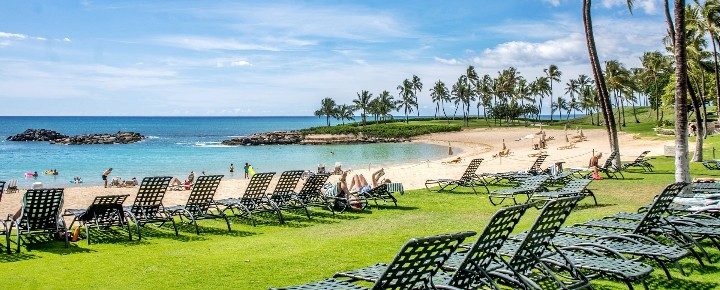
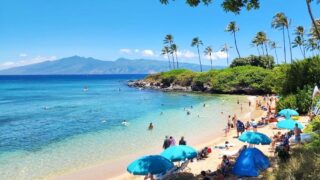
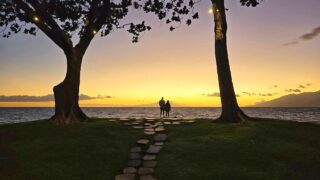
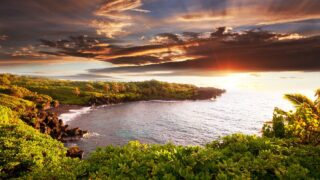
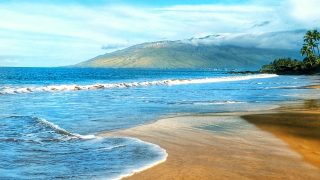


Sorry to be so blunt, but there’s a lot of misplaced resentment in these comments from folks who after “so many years” of visiting these islands, still don’t understand the local culture and mindset.
Nothing happens in a vacuum. HTA’s Mindful Tourism campaign did not materialize out of thin air. It’s a response to the weight of over-tourism and too many incidents of overentitled visitors behaving badly.
Unfortunately, it’s always the few bad apples that spoil things for the vast majority. We will eventually rediscover our equilibrium. But in the meantime, it might be wise to have a little grace and understanding, and not take everything so personally.
Aloha, I’ve just returned at the age of 65. I went to school in Hawaii Kai on Oahu when I was 15-16.
I now live with my daughter and family due to I’m getting very forgetful. I have always had great respect for all land I walk upon. I have great respect for the indigenous people and their customs. If I don’t know I’ll ask and take redirection respectfully. I hope to be embraced. It’s scary to grow old and forget something the next minute after hearing it. I just lie down on mother earth and feel her embrace.
I have to agree that “money” does not necessarily equate to “mindful tourist”. It is disheartening to hear people say they will avoid Hawaii because they are “unwanted visitors”. We have been visiting Kauai for a number of years and I have Never felt “unwanted” or been treated disrespectfully in person, quite the opposite. We will continue to visit the beautiful island and people of Kauai.
As long as people keep reading these negative reviews and non encouraging news, there just doesn’t seem to be any incentive to visit there. I can fly there on miles, stay with a friend and basically my only expense is a rental car. But I just get a heavy sad feeling when I read these posts. It’s taken away my joy and excitement of planning a visit there. My “second home” now is not seeming to be so. It’s very disheartening to say the least. I sure hope the atmosphere changes and soon for us longtime visitors. Mahalo for your news updates as always.
I wanted of buy a retirement property somewhere as warm as where i grew.. I ended up buying some land and a Condo in Kona. But I had troubles and couldn’t afford to retire or build. Mean time the properties got way more expensive, with more than double the taxes, higher electric bills and hoa dues. It’s been a great vacation but I’m just shy enough to know I won’t have friends in Hawaii. Time to sell and go home.
There are some people in this world who truly believe in being kind and good. Hawaiians are among them. The government is encouraging bad behavior. Shifted responsibilities. Blaming. Lack of respect for oneself. Hawaiians are being encouraged to become something they are not. They will suffer the most emotionally when all this is over. And all they have to show for it is not culture or family values or homes full of loved ones but decaying, small, one bedroom condos. They deserve more.
Since the question was asked, “What kind of traveler are you…” how about doing a poll of your readers? I’m sure the results would be enlightening.
Thanks BOH for giving us a platform to vent. My husband and I live in SW Florida and are also overrun by tourists. Many stay for 6 months every year (snowbirds) clogging our roadways. The difference is we welcome them here. They help keep our taxes low and many people employed. We saw a pickup truck from Hawaii on the road yesterday. The license plate frame advertised a car dealership and it appeared that the visitors were from Maui. We did not try to run them off the road, threaten them, or spew hateful words and hand gestures at them. Treat your tourists with respect and you’ll get the same in return. Just sayin’.
Agree with All of the above, you brought it upon yourselves.
We have been to Hawaii 30 times over the years (31 coming up in January/February). Mostly to Kauai. I’m not sure what is meant by “mindful” tourism, but I can guess that it will mean even more money out of our pockets. Until Hawaii realizes that their main source of income is tourism they will continue to have problems.
First trip to the state was summer 1956 for our father’s extended 3 year tour of duty at USCG air detachment, Barbers Point NAS Oahu. We lived in the village of Ewa Beach in a new 10 house cut-de-sac development, all occupied by officers and their families. Charter bus to on-base grade school. It was hard to avoid routine shake downs of white military kids by slightly older boys in the neighborhood whose relatives were historically Ewa sugar plantation employees. Rock fights, tree forts and occasional two or three on one assaults until the new kid learned to never enter the surrounding woods without friends.
My parents had their second honeymoon on Kauai. Dad took the family of then 6 to stay in Maui’s Io Valley at a tiny motel during easter vacation week 1959. Hana, Lahina, crater rim. I did not return to the state until winter ’99-’00 to make amends to my wife of now 55 years. Spend 3 to 6 weeks a year, mostly on Kauai’s south shore . “Mindfullness” comments later?
Oh Please… Someone tell the folks at the HVCB to put their right hand on their left shoulder and Get A Grip…. What alternate reality do these people live in??? Betcha they All to a person wear Sig Zane…
Best Regards
Especially the Hoʻolaukī Palikū Surf Hat – Blue!
My husband’s family has been in Hawaii since the late 1800’s, we have family there, and visit several times a year. I find the term “mindful” to be a meaningless buzzword, and its application to be semi-insulting. Hawaii will depend on tourism as its major money maker until its economy diversifies. HTA needs to inform visitors without preaching. Most visitors don’t want to harm a place they enjoy. HTA needs to find a way to inform AND welcome visitors.
Yeah, right! Care for the land when the people that live on Maui can’t, won’t, or don’t do the same thing! Tourists do not get rid of their trash along the roads! Tourists do not dispose of vehicles, appliances, and whatever else you might see along many of the roads and streets. 38 trips to Maui over the last 35 years and I have pretty much seen and heard it all. The tourists are Not the ones that caused the problems across Hawaii! It is your politicians that follow where the money comes from first and foremost and pay lip service to the voters that Still do not get it!
Don K,
Bravo and right on!
Hawaii is reaching the “tipping point” because of decades of one party rule at both the state and local level, as well as special interest agendas. Now the elitist mindset has taken over. The change that I have seen and experienced over 60 years of traveling Hawaii is very discouraging and is getting worse.
Hey, Don K….
Couldn’t agree more with you. As a person who has both lived in and visited Hawaii (especially Maui), I’ve seen more local folk who disparage and disrespect the aina and ke kai than you can shake a surfboard at. The worst was this spring when we went to Haycraft Beach Park in Maalaea only to find local folk who had commandeered the beach, used the park as an open toilet and drank and used drugs in sight of kids and family. “Mindfullness”, indeed. I love The Islands far too much to disrespect it like that. Still haven’t reached the end of my rope with Maui as we have too many friends there and the pros are still outweighing the cons.